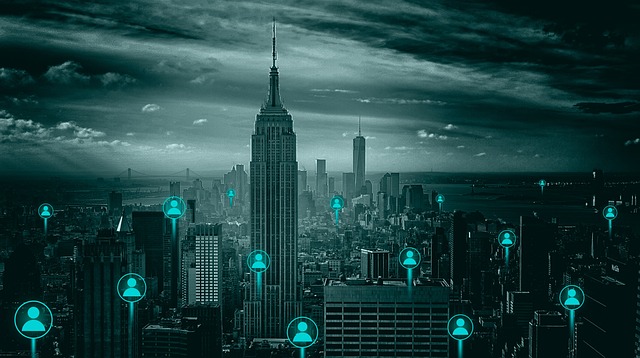
With the advent of big data analysis, there are now multiple ways to create international travel statistics.
The ability to analyze travel data and discover trends allows businesses to make better decisions about their marketing efforts, and ultimately helps them to find new ways to increase their revenue.
The global economy is changing, and so are the ways we travel. From new methods for booking trips to the power of big data analysis to better predict future trends, we’ll look at how our world is changing.
- The Internet and its Impact on Global Travel
The internet is changing the way we travel in ways both big and small. From booking flights, finding accommodation, checking prices, and making purchases; there are more ways than ever to search for the things we need. One way to approach the problem of how to sell the best way to use the internet for your business is to see it as another medium for your business.
There are many reasons people choose to travel internationally. One of the reasons why people are choosing to go international is because of the Internet. In recent years, the Internet has made it possible for travelers to get more out of their trip than they did in years past.
We’ve become so accustomed to the convenience of being able to search for a flight or a hotel room online that we often don’t even consider booking offline anymore. And this convenience isn’t limited to just travelers either. Small business owners are using online platforms to increase revenue, hire freelancers, and even manage employees.
- Global Tourism and the Importance of Data
The world’s largest travel agency, TUI, uses data to manage its travel businesses around the globe. According to the company, “The ability to forecast demand in real-time enables us to react faster, provide better services and maximize our investment in facilities, hotels and other assets.” In addition to being able to forecast demand, they also use data to predict the likelihood that people will choose to travel to a specific destination. They can also look for correlations between demand and travel patterns. For example, if demand is high in South America, they may send more employees there to ensure that the company can fulfill those requests.
Data isn’t just a big part of our lives; it’s the driving force behind the growth of the tourism industry. Global tourism accounts for about 14 percent of GDP worldwide. It generates over 6.8 million jobs, and in 2012, it contributed $3.1 trillion to the global economy. While the tourism industry is a big one, its global footprint is still relatively small.
- Why Big Data is Critical for Destination Marketing
Big data is important in the destination marketing world because it allows brands to understand what people like about their destinations. That way, they can connect with customers on an emotional level and create relevant offers. So if you’re in the travel industry and planning a trip, using big data would help you connect with your customers based on their interests and preferences.
Companies can use this information to design more effective campaigns and create the right content for their target customers. Another way is to use it to find out what consumers like about certain destinations and create more appealing products and services. Yet another way to use big data is to find out what consumers are interested in and then create products and services that cater to their needs.
Big data allows you to learn more about your customer. By learning more about your customer, you can develop more relevant products that will make your business more successful. Big data lets you analyze and understand the trends and data that impact your business. It also helps you find out what your audience wants. That’s why big data is important in the destination marketing industry. You can use it to gain insight into your audience. For example, if you are planning a vacation, big data will allow you to make sure that you have a comfortable hotel room.
- How Big Data is Changing the Travel Industry
Big data is changing the travel industry in many ways. The big change is that more companies are using data and technology to gain insights into traveler preferences, which in turn helps them create better customer experiences.
“Travel data” encompasses a range of information, from where a traveler is going to where a traveler has been, how long a trip will take, and what hotels the traveler will stay in. Travel data is collected using a variety of different techniques, including data mining, geofencing, and user tracking. Data is collected in real time and used to target marketing messages to potential travelers. This process can help increase conversion rates and ultimately provide the travel company with better insight into its customers.
- Data and Tourism Marketing
With tourism becoming an increasingly popular sector of the economy, more and more travel agencies are seeing the potential in marketing with data. In fact, over the past five years, travel agencies have seen revenue growth of approximately 11 percent every year. While it’s true that many traditional methods of marketing are being replaced by digital marketing methods, there is still an essential role for travel agencies to play in the tourism industry.
Data-driven marketing means using data and analytics to target your audience. Travel agencies use this method to better understand their audience and how to best target them. For example, travel agencies can collect information about the number of customers who have viewed their travel offers on social media platforms. They can also study the customers who view their offers on social media and use that information to target new customers with similar interests.
In conclusion, it’s all about getting the most out of every bit of data that you can. Using the right technology and tools like Delphix and taking advantage of the best tools, you can analyze the data to gain insights and better understand the behavior of your customers and where they spend the most of their time. The more you know, the better you can serve them and provide a better experience to them.





